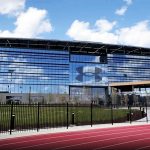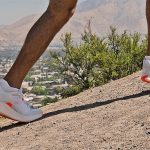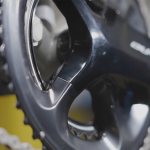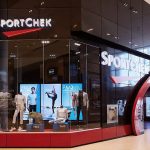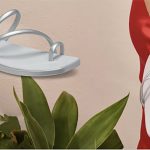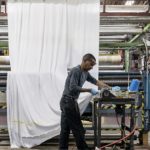The Consumer Product Safety Commission opted to extend until mid-August its stay of enforcement of certain testing and certification provisions affecting bicycles due to a continued lack of third-party labs certified to do the work. The stay applies to section 14 of the Consumer Product Safety Act (CPSA) as amended by section 102 of the Consumer Safety Improvement Act of 2008 (CPSIA), which was passed largely in response to a public outcry over the discovery of lead tainted toy imports from China.
The Commission is extending the stay for bicycles under 16 CFR part 1512 until Aug. 14, 2010, with two exceptions. First, the Commission is extending the stay related to reflectors (16 CFR 1512.16) until Nov. 14, 2010. Second, bicycles with non-quill-type stems are excluded from certifying compliance to 16 CFR 1512.6(a) – handlebar stem insertion mark – until further notice.
Section 14 of the CPSA requires that every manufacturer of a product (and the private labeler, if the product bears a private label) that is subject to a consumer product safety rule, ban, standard, or regulation enforced by the Commission certify, based on testing, that its product complies with the applicable safety rule, ban, standard, or regulation.
The Commission announced the criteria and process for accepting accreditation of third party labs under 16 CFR part 1512 in a notice of requirements that appeared in the Federal Register on Sept. 2, 2009 (74 FR 45428).
On Feb. 9, 2009, the Commission published a notice in the Federal Register staying enforcement of the testing and certification requirements for many products, including bicycles (74 FR 6396). The Commission committed to the stay for one year, explaining that the stay was necessary to “give us the time needed to develop sound rules and requirements as well as implement outreach efforts to explain these [new]requirements of the CPSIA and their applicability.”
On Dec. 28, 2009, the Commission published a notice in the Federal Register revising the terms of the stay (74 FR 68588). In that notice, the Commission lifted the stay for some CPSC regulations and extended the stay for other CPSC regulations. Relevant for present purposes, the Commission stated that it “plans to keep the stay in effect for the bicycle regulations (16 CFR part 1512) as applicable to all bicycles, both non children’s (sic) and children’s, until May 17, 2010. With regard to bicycles, the Commission has determined that there is insufficient laboratory capacity for third-party testing of bicycles at this time . Should the extension of this stay until May 17, 2010 prove insufficient,the bicycle manufacturers and laboratories must petition the Commission for additional relief no later than April 1, 2010.”
On April 1, 2010, the Bicycle Product Suppliers Association (BPSA) petitioned the Commission for an extension of the stay of enforcement as it relates to 16 CFR part 1512, the CPSC safety regulations for bicycles. The BPSA contended that laboratory capacity was still inadequate. It also asserted that 16 CFR part 1512 is “out of date in many respects,” and urged the Commission to revise the regulation.
Finally, BPSA maintained that the bicycle industry has a good record of compliance with part 1512 and so extending the stay would not increase risk to public health or safety. The CPSC invited the BPSA to meet to discuss the petition, and such a meeting was held on May 3, 2010.
The Commission has decided to extend the stay of enforcement of the testing and certification requirements imposed by section 14 of the CPSA with regard to bicyles until Aug. 14, 2010, with two exceptions noted immediately below. As of May 12, 2010, there are five CPSC-accepted conformity assessment bodies accredited to test to some or most of the standards contained in 16 CFR part 1512. This limited extension of the stay will provide time for the development of additional laboratory capacity for the testing of children’s bicycles.
Nevertheless, bicycle manufacturers must certify based on testing that their products, both nonchildren’s and children’s, manufactured after Aug. 14, 2010, comply with 16 CFR part 1512. There are two exceptions to this extension of the stay.
In addition, the Commission is aware that bicycles with non-quill-type stems may not be able to comply with the insertion mark requirement of 16 CFR 1512.6(a). Bicycles with non-quill-type stems are hereby excluded from the requirement



